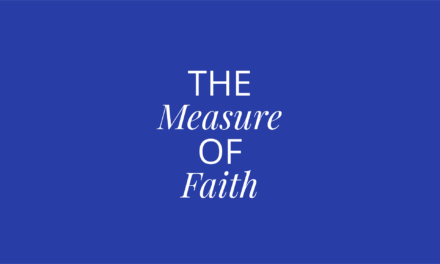Q.
Hi John,
In reference to assurance, Hebrews 12:14 speaks of actively pursuing holiness. Would you say that this pursuit of holiness is based on one’s position in Christ’s holiness and, if so, one who is not in pursuit of holiness has never encountered the living Christ for salvation? Is this pursuit of holiness an evidence of salvation? Thank you.
Jeff
A.
Hello Jeff,
Thank you for your question! Perhaps I should say from the start that Christians ought to live like Christians. Every Christian ought to pursue holiness. The provision to do so is in one’s position in Christ as well as one’s provision of both a regenerated spirit, which consists of the nature of God implanted into one’s being at salvation, and one’s union with the indwelling Holy Spirit. The question is whether this pursuit of holiness is inevitable because you’re saved or whether it is by faith.
Assurance has to be based on that which is sure. The only infallible assurance is the infallible Word (e.g. John 6:47; 1 John 5:11-13). Every other type of assurance may be of help if it is kept as secondary, and the infallible Word as primary. The reason for this is that every other type of assurance is fallible.
In this case, pursuing holiness is fallible for at least two reasons:
- First, we don’t always pursue holiness. We should. The provision of a regenerated spirit, along with the indwelling Spirit, is such that we could. But tragically we don’t always do so. This shows that pursuing holiness is not investable or automatic. Rather it is a responsibility of faith.
- Second, unsaved moralists can pursue outer holiness. Obviously, for them there is no inner holiness, which makes their outer holiness the form of godliness that denies the power of it.
Inner holiness is the fruit of the Spirit, which is manifested as you abide and depend on Christ. Pursuing holiness then is an evidence of abiding in Christ, which reveals a responsible faith, not just an evidence of salvation, which would make it inevitable or automatic. Pursuing holiness would encourage one in their assurance, yet it must be remembered that it is not an infallible test of assurance.
John











I agree – it’s not the “perseverance of the SAINTS” that provides assurance; rather, it’s the direct witness of the Holy Spirit through dependence on Word. Just as repentance to salvation is a command (Acts 17:30
) that can be disobeyed, so can the command to walk in the Spirit (Col 3:6) be disobeyed. Salvation is not based on works. Neither is sanctification. Both are base on faith. The pursuit of Holiness is simply apprehending, or not, that for which we have been apprehended of Christ.